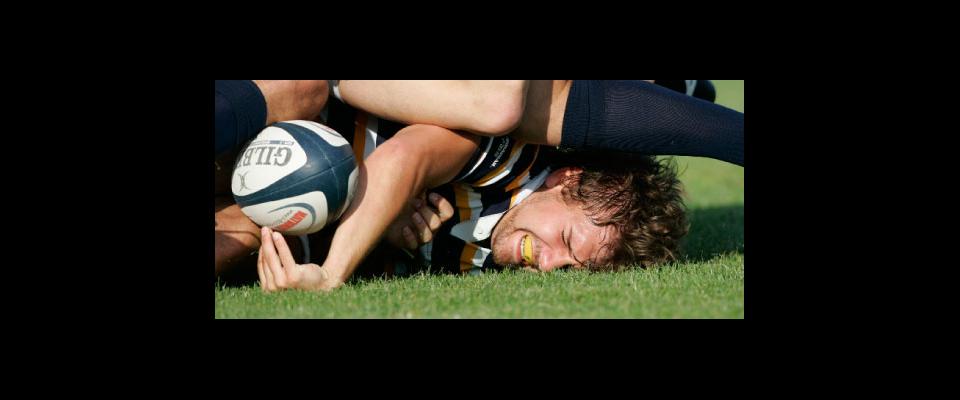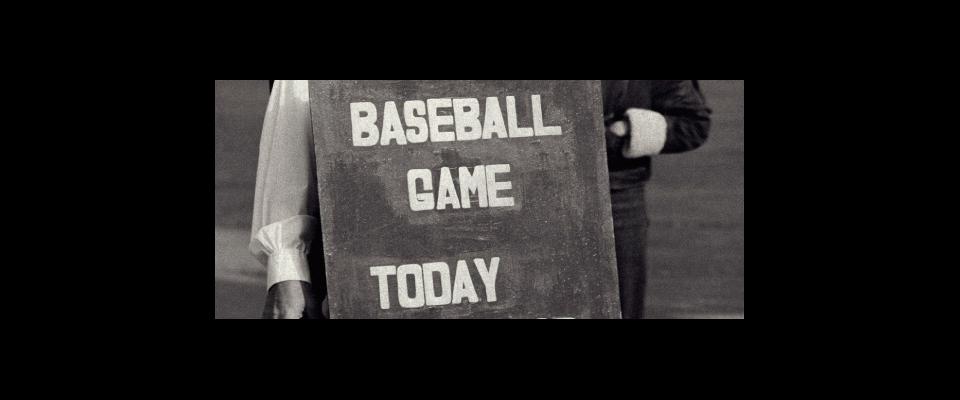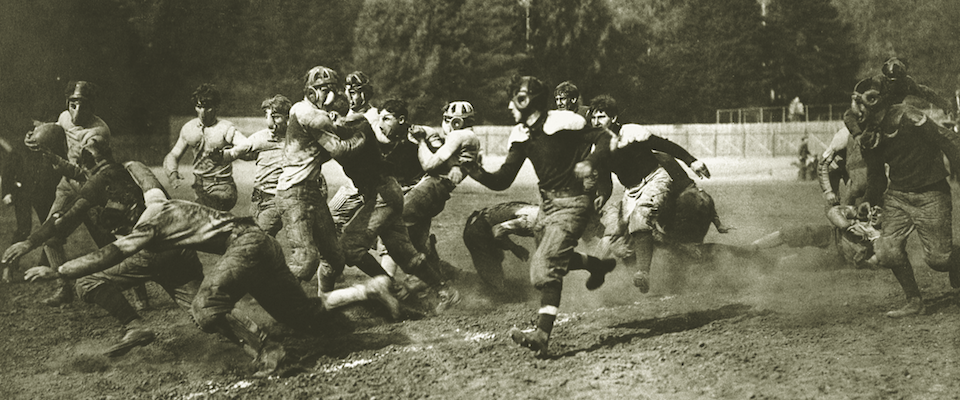Seven years ago, campus was rocked by this headline in The Daily Californian: “Stanford Forfeits Cal Rugby Game.” It was all explained in an email from Stanford coach Franck Boivert to Cal’s Jack Clark ’79, saying that while Stanford’s players weren’t afraid of losing to Cal (as they had for 19 out of 20 matches in the series), they were “very afraid to get injured” and indeed were in “fear for their safety.”
Clark was disappointed—for the players, that is. The Golden Bears, the most successful collegiate rugby team in the United States, no doubt would have decimated the Cardinal, but the point was the challenge. “You can’t force people to go out and contest what they don’t want to contest,” Clark told reporters at the time, “but this has to be about teaching people how to compete.”
To an extent, this exchange distills the controversy around Cal’s rugby team and the man responsible for its success. Many of the 400 colleges with rugby teams consider the game a club sport, more of a hobby. It’s fondly called a “drinking team with a rugby problem,” known for its traditions of “shooting the boot” (wherein a player will drink beer from his shoe) and “hosting” (the home team takes the visitors out to the pub). Participating in such activities would be unheard of for a Cal Rugger.
Among this crowd, Clark is something of a wolf in a dogfight. Still, fans applaud him for elevating the sport to Division I varsity level. One of six coaches in the 126-year history of rugby at Cal, he’s headed the team through 25 seasons amassing an astonishing record. In 2008 the team won its 24th national championship in 29 years (its fifth in a row). This year, nine players were named “All Americans” by American Rugby News. Two players are the only collegians up for the international U.S. team, which will play in the World Cup Series. Clark’s record stands at an impressive 440–66–5.
Former Cal Rugger Rikus Pretorius has played the game for 17 years and finds Clark to be the most organized coach he’s encountered. He calls Clark a “true rugby gentleman”—that is, “he can just step out on the field and play like a monster, and step off the field and be humble and a good sport about the game.”
Eager for worthy foes, Clark encourages other coaches to improve their programs; he’s even written articles offering suggestions. Still, critics claim that Clark has an unfair advantage. In fact, there’s nothing fancy about the Golden Bears rugby program. It gives no athletic scholarships—all players must be accepted to Berkeley on academic merit, according to the Cal Athletic Department. It receives minimal funding from the University. Instead, it relies on donations from alums, many of them former players, and on the Witter Endowment fund, set up by Thomas Witter, whose family is the namesake of the field where the players now practice. Clark, too, has worked hard at securing the team’s finances. In the late 1980s he launched the “Cal Rugby Forever” campaign. It’s not just a slogan, he says, “it’s what we feel in our hearts.”
If there is a secret to Clark’s success, it’s his drive to carry on the legacy of Cal rugby. “We are committed to…being the best rugby team in America,” Clark says. To achieve that goal, the team trains hard, both on and off season. “There’s no shortcut to this goal. It’s about honest work and detail,” Clark says. “A little bit of talent helps as well.”
Much of the practice involves learning to play in unison. “I reckon our student athletes are getting a Ph.D. in ‘team,'” he says. The sense of team binds the players together across generations. “There are men who played in the late 1930s that still turn up at our matches,” Clark says. And they all feel it when the team loses one of its own. This year, the team mourned the loss of star players Loren Hawley and Robert Witter.
Meanwhile, there are recruits to find at the Cal Rugby Camps, which Clark directs, and more training for upcoming games. Clark’s up for it. “I get out of bed every day and can’t wait to get on campus and with our team,” he says. “It’s such a privilege to be Cal’s rugby coach.”




















